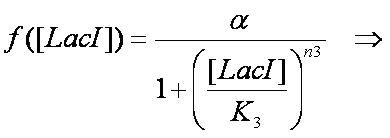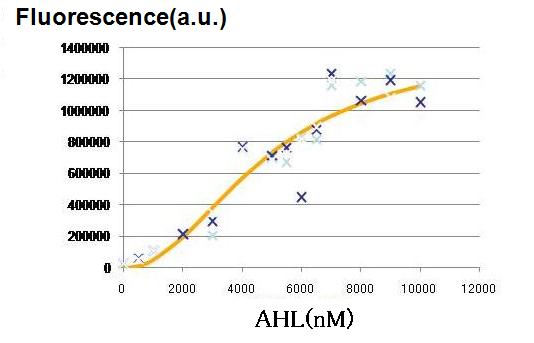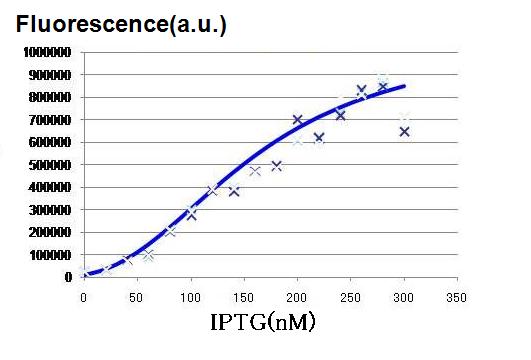Tokyo/Works/Assay
From 2007.igem.org
Works top 0.Hybrid promoter 1.Formulation 2.Assay1 3.Simulation 4.Assay2 5.Future works
Purpose of this assay 1.AHL assay 2.IPTG assay Preliminary assays
Purpose of this assay (Hill function fitting)
We have obtained data for our newly devised hybrid promoter. By Hill function fitting, we have determined n2, n3, K2, and K3.


⇒see more details
1.AHL assay
Purpose
check how AHL activates lux-lac hybrid promoter.
These parameters(n2,K2) is decided.
Result & Conclusion
As the concentration of AHL increases, GFP fluorescence increased, indicating that the hybrid promoter’s activation is strengthend with increasing concentration of AHL. From the activation graph in Fig. 1, the characteristics of the hybrid promoter expressed in Hill function, such as (n2,K2), is determined.
⇒see more details
2.IPTG assay
Purpose
check how LacI represses this hybrid promoter. In order to adjust LacI repression, IPTG was added.
These parameters(n3,K3) is decided.
Result & Conclusion
The concentration of IPTG dose-denpendently increased GFP fluorescence. It indicates that the hybrid promoter in the cells expressing LacI became increasingly strengthened by decline of repression by LacI. The activation graph in Fig. 2, the characteristics of the hybrid promoter expressed in Hill function is determined.
⇒see more details
Appendix: Preliminary assays
We conducted preliminary assays as practice experiments and check of materials and methods.
⇒See more details
Before(Formulation) << Assay1 >> Assay1 contents >>>> Simulation


